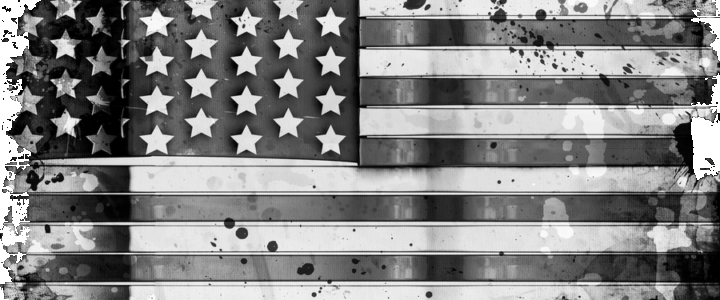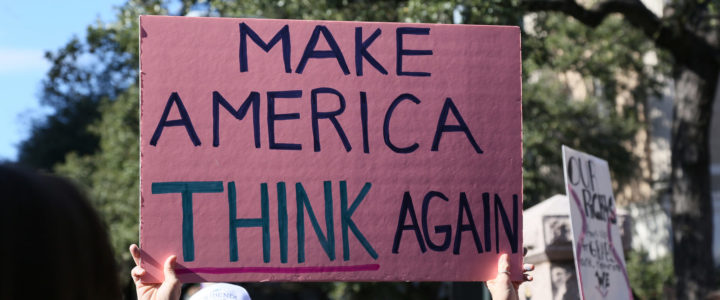The year is 2020 and let’s face it, the world loves memes. While some “old-timers” are sitting there like this:

The rest of the world has embraced the “who has time for a 30-minute sitcom? Just give me a meme that I can digest in 5 seconds” attitude of a very real hustle and bustle go, go, go reality. In fact, memes are so popular that we’ve created meme “templates” where people are able to easily change their words to make a passive-aggressive point under the pretense of it being “funny”. Some of the more popular ones right now include the “woman yelling at a cat”, “Lisa Simpson giving a TED Talk”, “toy monkey looking away”, and of course, “Baby Yoda” (among many others) seen here:




And with each world or cultural event, the “Meme Mafia” (as I like to call it) comes out in full force to incite a particular audience. Now that last bit is worth taking a pause for a moment. Memes are “successful” primarily because of their ability to target a specific audience with specific beliefs. Now, this isn’t groundbreaking information; books, plays, magazines, news broadcasts, and on and on have been doing this since the beginning of time. The reasons that memes have caught on like wildfire in our current global environment are threefold:
- They are quick and easy to “consume” (as previously mentioned)
- They are designed to make a statement, NOT to invite discussion. This becomes attractive to posters because it gives them a “this is the last word” type of feeling when sharing (an element that is particularly important in American culture regarding the psychology of competitiveness)
- They oftentimes mask their meaning behind “humor” (or attempt to), even when the subject matter in question is religious, political, or critical of any type of belief system or worldview (areas that prior to the emergence of memes, were faux pas to talk about).

Okay, okay. I’m getting there Willy Wonka. Back to 2020 and world events. In January, Australia was hit hard by wildfires, killing millions of animals, burning millions of hectares (one hectare is 100 acres in case you were wondering [insert “The More You Know” meme here – except I’m not actually inserting the meme, I just wanted you to hear the jingle that goes along with that in your head]), and creating ecological, biological, and health disasters all over the continent. And for those of us not living there, we made memes like this:

Then Kobe Bryant died in a tragic helicopter crash which claimed the lives of several others (including children) and we got memes like this:

In May, murder hornets became a thing (unless you lived in Asia, in which case, they were already a thing), and we got memes like this:

But more than anything else, of course, 2020 will be remembered for the novel coronavirus, Covid-19, which has brought entire nations to their knees (economically-speaking; physically-speaking, it put everyone in quarantine), and the “Meme Mafia” (in conjunction with how polarized American culture has become) has had a field day, turning a global pandemic into something that is labeled and separated down political lines. But as the internet has become flooded and saturated with “clever” (I put that in quotes because, in reality, they are mind-numbingly stupid and illogical) memes, I started to see a definite theme developing in memes like this:




At first, I thought: “We’ve got to be the only country in the world where people are protesting their ‘right’ to go risk their lives to make the rich richer (and the rich are the ones who are social distancing and avoiding the public like a…well, plague).” But even that’s too complex. To truly understand why memes like those above are so popular, we need to simplify all of it down to the obvious common denominator: “freedom”.
The current American “Pledge of Allegiance” goes like this (and yes, it’s been revised four times throughout history – cue “The More You Know” jingle):
‘I pledge allegiance to the Flag of the United States of America, and to the Republic for which it stands, one Nation, under God, indivisible, with liberty and justice for all.’
The ‘indivisible’ part is, in and of itself, more comical than any of the memes out there (at least in 2020), but let’s not get sidetracked. So nowhere in the “Pledge of Allegiance” is the word ‘freedom’. What about any of the other important historical American documents? Let’s see…the “Declaration of Independence”?
‘We hold these truths to be self-evident, that all men are created equal, that they are endowed by their Creator with certain unalienable Rights, that among these are Life, Liberty, and the pursuit of Happiness.’
Apparently women are not created equal (or weren’t in 1776 anyway), but again, let’s not get sidetracked. Not seeing ‘freedom’ in there either. 0 for 2 so far. Let’s check “The Bill of Rights” since our “Declaration of Independence” mentions rights with a capital ‘R’.
There’s too much to cite directly in there, but let me read it here a bit. Da da da da da. Eureka! “The Bill of Rights” protects ‘freedom of speech’, ‘freedom of religion’, ‘the right to keep and bear arms’, ‘freedom of assembly’, and the ‘freedom to petition’. Finally, something connecting being American to “freedom”!

You know what, Willy Wonka? I’m getting a bit anno-. Wait…

No! No meme wormholes here! The point – get to the point. Americans, it seems, might be interchanging words like “liberty” in “The Pledge of Allegiance” and “The Declaration of Independence” with “freedom”.

Yes Mel, that. Now go away. To investigate this hypothesis further, I took to Facebook-land and asked a simple question: “What is the difference between freedom and liberty?” Here are some of the responses I got (the anonymous one I chose sent me a private message – didn’t want to get flogged by the throngs of social media trolls out there perhaps):
Anthony C.: Freedom is what we earned when we said kiss my ass to England in [the] 1700’s and our constitution is based on freedom. Liberty is what we live by and receive as United States citizens! Liberty and justice for all, it’s what we promise for all.
Amanda L.: Liberty sounds more disciplined than freedom. It also seems to be used in more cerebral/educated situations than freedom, but freedom could be used in the same realm. There seem to be more connotations and uses of liberty alongside other political concepts, whereas freedom seems a bit more general.
Johnathan C.: Freedom is the ability to make a choice and liberty is freedom from oppression.
Tim S.: Freedom is the act of doing something without interference while liberty is the state of being free. To use a sports analogy, freedom is the act of shooting a basket while liberty is the game of basketball that you’re playing.
Cameron F.: Freedom is the ability to speak, act, and live without restrictions imposed by someone else. Liberty is the ability to do the above, while being part of a larger society.
Anonymous: There is no difference They are the same thing.
These responses were just a snapshot of all the responses I got, but I tried to provide an accurate representation of the overall feel for this piece, and overall, there were a small number of people who knew there was a difference (and even tried to give analogies), but still missed the mark a bit, some people who were so incredibly vague you couldn’t tell if they knew there was a difference or not, and another group of people who obviously think of them as the same thing.

So what is the truth? To get a more accurate understanding of the two, I asked a good friend of mine, who is a political scientist, a college professor, and an important member of a city committee. Here is what he told me:
“The short answer? Freedom is that you are free to swing your fist and punch me in the face. Liberty is that your freedom to swing your fist ends where my face begins. Liberty carries with it the notion that freedom is limited by the well-being of others.”
He asked me if I wanted the long answer. I said sure:
“I subscribe to the Thomas Hobbes school of thought of humans in their natural state.” He told me. “That the life of man is solitary, nasty, poor, brutish, and short. That in the state of nature, we are basically playing a giant game of king of the hill, where we are free to kill and steal for our own survival. Hobbes says that we give up this freedom and invite a Leviathan (a government) in to govern us.
As Americans, we believe part of this governance is protecting the liberty of all, but we give up certain freedoms to ensure that liberty is maintained…we lay down our arms…we are no longer free to kill and steal. In exchange, we are protected from others killing us and stealing from us.
To create a 2020 example, your freedom to go to the grocery store without a mask on ends when the well-being of others is in question.”

Ah yes, I still need that. Not quite done.

Yeah Grumpy Cat, now go sit in the corner with Willy Wonka!
So, freedom is what you think of it as. Your ability to do whatever the *firetruck* you want. Liberty, on the other hand, is the set of regulations and rules that a governing body puts in place to protect the perceived well-being of others. Liberty, in effect, is what limits freedom (in specific scenarios). Every semester when I get a new bunch of students, one of them inevitably always asks the question: “Can we cuss in your class?” This is my response: “You’re free to say whatever you want, words are just words. But you aren’t free to offend or insult someone else with your words.” They look at me a bit confused, wondering if I’m some sort of “snowflake” and follow it with: “So what does that mean?” Almost as if they don’t know the difference between freedom and liberty. I reply: “If you say ‘I got a fucking F on my biology exam’, that’s okay. If you scream ‘Fuck you!’ across the room at someone, that’s not okay.” Of course, this generally prompts a “but I have freedom of speech” type of comment from the ‘wise-guy’ student, but we’ve already covered our bases there.
Getting back to 2020 and the Covid-19 pandemic, this lack of understanding the fundamental difference between “freedom” and “liberty” (and an interplay of “Rights”)

is at the heart of what the “Meme Mafia” preys upon with their specific audience in mind. Major areas of emphasis (thus far) have been facemasks, the reopening of businesses, white privilege, the upcoming Presidential election, and conspiracy theories. In each sub-topic related to Covid-19, the “Meme Mafia” is out in full force, turning each of these seemingly innocent topics into divisive issues along party lines (and party characteristics). Let’s take a closer look at one of them: facemasks.
Only in America can we turn something like wearing a facemask to protect others (again, liberty is spelled with an ‘L’) into a political battle between Democrats and Republicans. Here are some facemask-related memes to provide a snapshot.






Some are funny, some take a more serious approach, but they are all designed to have a manipulative effect on the reader. One common pitfall that the “Meme Mafia” uses over and over again (and their target audiences fall for it over and over) is the logical fallacy of “False Analogy” (in simple terms, you’ve all heard the saying “that’s like comparing apples and oranges” – that’s what “False Analogy” is). To teach this, I use the most common example: Hitler and Nazis. Whenever someone makes a comparison to Hitler or the Nazis, there should be giant red flags going up all over the place screaming “False Analogy”!

Hey! Just because I was talking about you doesn’t mean you can just interrupt me! Now go, get out of here! No…no you can’t sit in the corner with Willy Wonka and Grumpy Cat, get out! *door slams* Sheesh. But seriously, this meme was posted by an anti-facemask conservative on my social media.
But the “False Analogies” aren’t always as easy as Hitler and the Nazis to recognize. As you can see from the memes above, they can use abortion, gay discrimination, and privilege (to scratch the tip of the iceberg so-to-speak) in comparison to facemasks. This works, of course, because the “False Analogy” being made is in favor of the belief system characterized by the target audience.
The “Meme Mafia” is also successful in playing off of the characteristics of each “side”. “Liberals” are stereotyped as more empathetic (e.g. caring about others) and logical (two characteristics that allow “Conservatives” to create monikers like “snowflake” and “libtard”), while “Conservatives” are stereotyped as blue-collar, ‘pull yourself up by the bootstraps’, rough and tough (characteristics that allow “Liberals” to create monikers like “redneck” and “deplorable”). In the memes above, you can see how the more “Liberal” ones try to use a more “I care about YOU” or here’s some logic-type of approaches. Here is an example of a “Conservative” meme that plays off of their stereotypes:

Of course, regarding the simple subtopic of facemasks within Covid-19, one must only go back to the simple difference between “freedom” and “liberty” to understand that the American government has deemed them necessary for the perceived well-being of society. Personally, I find it humorously ironic that the people propagating facemasks being against their “freedom” or “rights” are aligned with the current party that controls two-thirds of the American government telling them they must wear facemasks. Perhaps the best meme to capture this issue of facemasks, “freedom”, “liberty”, and “Rights” is this one:

The requirement of a shirt and shoes was never an infringement on “freedom” or “Rights”, but a facemask? Grab the pitchforks, folks!
I kid (kind of), but something ridiculous like facemasks should never have become “a thing” to be honest. Something more sinister is at work in American society, and the “Meme Mafia”, like flies on pig poo, was all over it. Maybe these two memes can paint a bigger picture:


In a polarized society, who are Americans supposed to trust? I would say that never in the course of history has this happened, but I don’t want that Adolf guy coming back, so I’ll say: rarely, and most assuredly before all of the darkest moments of humanity, the presence and promotion of dangerous echo chambers become unavoidable.

Not sure what I like more there: seeing Ed Hochuli still refereeing or noticing that the Pittsburgh Steelers are losing. Regardless, here’s the official (I used that word in honor of you Mr. Hochuli) definition of an echo chamber:

Simply put, the lack of critical thinking, trust, and non-biased news organizations (designed to generate money by manipulating their specific target audiences) in the United States have led our society to the point where people are willing to shoot and kill others over something as stupid as facemasks.
Regarding the “Meme Mafia”, we really can’t blame them for creating a fascinating medium of text that allows the deeper thinker to reflect on the sociological constructs of a given culture and its most prevalent subcultures. It’s their job to identify the strongest echo chambers present in society and to exploit them in hopes of going “viral”. But we can learn from that! We can use memes as a critical lens for what problematic echo chambers exist, not only on a global level but even on an individual level. What memes do you regularly share? Do they have a common theme? What echo chambers do they speak to or promote (that is the purpose of why you are sharing them after all)? And by sharing these types of memes day-in and day-out, is this “healthy” for you and those around you on a long-term basis?
To wrap up “freedom” and “liberty”, educate yourself. Know the difference and be a decent human being. Let go of your self-centered “stick it to the man!” or “fuck the libtards!” worldview and be a team player. Stop allowing yourself to think of America and other people in terms of us and them. As left and right. As white and black. As rich and poor. Do these differences exist? Of course. But instead of thinking about difference all the time, how about we think about the one commonality that we all have: we’re American, and Americans care. Let’s start caring about each other regardless of the differences we have instead of letting manipulative entities divide us and turn us against one another. We all have the “freedom” to do whatever we want, but we also have the responsibility to uphold “liberty” and protect our fellow people, even if you don’t always agree with it.





















